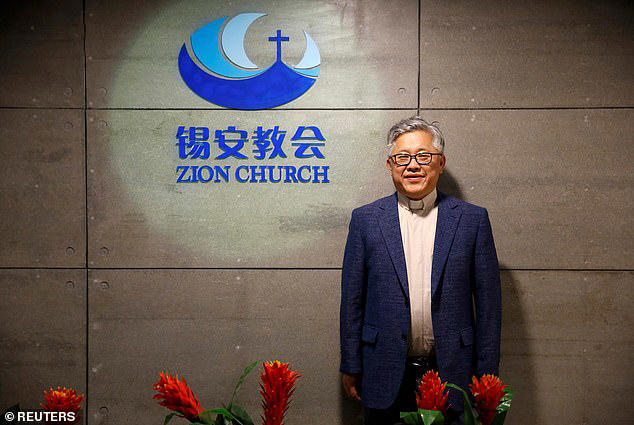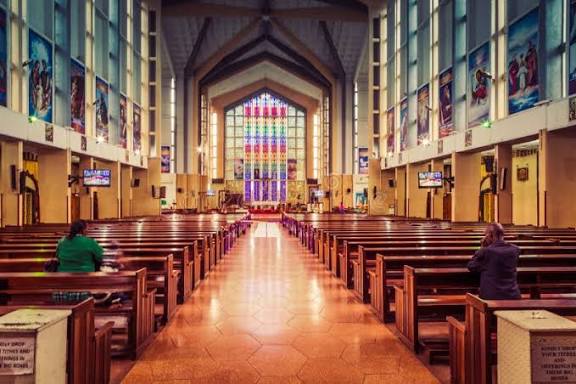
China has unleashed its most severe crackdown on Christians in years, detaining dozens of underground pastors, church elders, and worshippers in a sweeping campaign that rights groups say marks a dangerous escalation in Beijing’s assault on religious freedom.
According to reports from rights watchdogs and local sources, more than 30 pastors associated with Zion Church, one of China’s largest unregistered Protestant congregations, were arrested across several provinces last week. Many others have been summoned for questioning or forced to sign pledges renouncing unregistered worship activities.
The church’s influential leader, Pastor Ezra Jin Mingri, was reportedly detained in Beijing on Friday night. He is being held under the charge of “illegal use of information networks,” a broad offense often used by Chinese authorities to target activists, journalists, and faith leaders. Human rights observers warn that such charges could carry prison sentences of up to seven years.
Coordinated Nationwide Sweep
The coordinated raids unfolded simultaneously in at least five provinces, including Guangdong, Henan, and Sichuan, signaling a centrally directed campaign. More than 150 worshippers were questioned, church buildings were sealed, and online gatherings were disrupted by state censors.
In the days following the arrests, social media platforms popular among Chinese Christians, such as WeChat and Douyin, were flooded with warnings urging believers to “exercise caution” and avoid online worship sessions. Several Christian chat groups were abruptly shut down under new cybersecurity regulations introduced earlier this year.
The crackdown coincides with Beijing’s implementation of stricter online religious content laws, which prohibit unregistered groups from livestreaming sermons, sharing religious videos, or using artificial intelligence to promote religious messages. Officials claim the measures are designed to “curb extremism” and “preserve social stability,” but faith advocates argue they are aimed squarely at silencing independent Christian voices.
Zion Church: A Symbol of Resistance
Founded in 2007, Zion Church rose to prominence as a vibrant, urban Christian movement that attracted thousands of young professionals across China’s major cities. Refusing to register under the state-controlled Three-Self Patriotic Movement, the church became a symbol of defiance and a safe haven for believers seeking freedom from government oversight.
After authorities forced the church to close its Beijing headquarters in 2018, Pastor Jin continued to lead services through online platforms and smaller private gatherings. Those activities have now made the church a key target under President Xi Jinping’s policy of “Sinicizing religion”—a campaign to align all religious institutions with Communist Party ideology and Chinese cultural norms.
“The goal is total control,” said a researcher from the U.S.-based group ChinaAid. “Independent Christian networks like Zion Church are seen as potential threats because they attract large followings outside the party’s influence.”
International Condemnation
The latest detentions have triggered widespread international condemnation. The U.S. State Department, the European Union, and several Christian advocacy organizations have called for the immediate release of all detained church leaders.
“The Chinese government’s continued repression of religious freedom is deeply troubling,” said U.S. Secretary of State Marco Rubio in a statement on Monday. “We urge Beijing to cease its harassment of peaceful worshippers and to uphold its own constitutional guarantees of religious liberty.”
Rights groups argue that Beijing’s actions violate Article 36 of China’s constitution, which nominally protects freedom of religion. In practice, however, that freedom is heavily restricted to state-sanctioned churches that must display loyalty to the Communist Party and President Xi.
Faith Under Fire
For China’s estimated 100 million Christians—half of whom worship in unregistered “house churches”—the latest campaign represents a new wave of persecution. Many have gone underground, meeting in homes or secret online forums to avoid surveillance.
Families of the detained say they have been denied access to their loved ones and have received little information about their whereabouts. Several lawyers who offered to represent the pastors have reportedly been warned off by local security officials.
Analysts say this crackdown mirrors earlier campaigns in 2018 and 2020, but with greater coordination and the use of digital monitoring technologies, including facial recognition and online data tracking. The targeting of online religious expression, they warn, could mark the beginning of a long-term digital suppression strategy.
A Growing Global Concern
Observers believe China’s tightening grip on faith groups reflects a broader effort to control ideology and public life amid economic uncertainty and growing social discontent. As the Communist Party seeks to consolidate power, religion—especially Christianity’s global connections—remains a sensitive flashpoint.
Afripulse analysts note that the developments in China carry wider implications for global religious freedom and digital rights. If successful, Beijing’s model of controlling online faith expression could inspire similar tactics in other authoritarian states.
For now, Zion Church stands as both a symbol of defiance and a warning of what lies ahead for China’s millions of unregistered believers.


